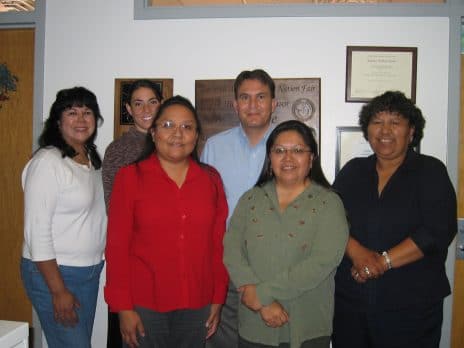History

NAARP…NASS…OISS
In July of 1994 under the leadership of NAU President, Dr. Clara Lovett, a new student affairs department was created to increase retention and graduation rates of Native American college students and this department was called Native American Academic Retention Program (NAARP) and began with a staff of three. The creation of the student affairs department came out of great concern expressed by students, staff, faculty and tribes regarding the low retention and lack of support services directly targeting Native American students at NAU.
Three NAU staff members, Tessie Moate, Catherine Talakte, and Dennison Young, were recruited to begin developing a program that would meet the needs of Native American students. Later the program grew in personnel with the addition of a Director, Secretary, Graduate student and student employees. The NASS office was originally housed under the Academic Affairs Division, later moved to the Student Affairs Division in 1998 and has been housed under the Enrollment Management and Student Affairs (EMSA) since 2003.
The NASS office was initially located in the University Union, building 30, from 1994 to 2011 and in October 2011, NASS moved into the newly opened Center for Native American and Indigenous Futures (CNAIF), building 14.
As our NAU students have become more diverse from various Native Indigenous backgrounds (Native American, Alaska Native, Native Hawaiian, First Nation, Aboriginal) and with input from students, NASS changed their name to Office of Indigenous Student Success (OISS) in November 2018.
The OISS is supported through state, local and foundation funding for services and programs. Additionally, external funding through generous grants have been received from the Ak-Chin Indian Community and most recently the San Manuel Band of Mission Indians of Highland, California (Native Bridge to Success Program).
The Office of Indigenous Student Success continues to provide holistic guidance to Indigenous students through collaborative partnerships with other Student Affairs departments and campus colleagues.
